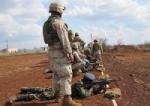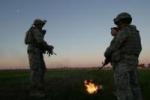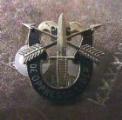Now, this unity is the conception that war is only a part of political intercourse, therefore by no means an independent thing in itself.
We maintain, on the contrary:
that war is nothing but a continuation of political intercourse, with a mixture of other means. We say, mixed with other means, in order thereby to maintain at the same time that this political intercourse does not cease by the war itself, is not changed into something quite different, but that, in its essence, it continues to exist, whatever may be the form of the means which it uses, and that the chief lines on which the events of the war progress, and to which they are attached, are only the general features of policy which run all through the war until peace takes place.
Accordingly, war can never be separated from political intercourse, and if, in the consideration of the matter, this is done in any way, all the threads of the different relations are, to a certain extent, broken, and we have before us a senseless thing without an object.




 Reply With Quote
Reply With Quote


 "A Sherman can give you a very nice... edge."- Oddball,
"A Sherman can give you a very nice... edge."- Oddball, 











Bookmarks